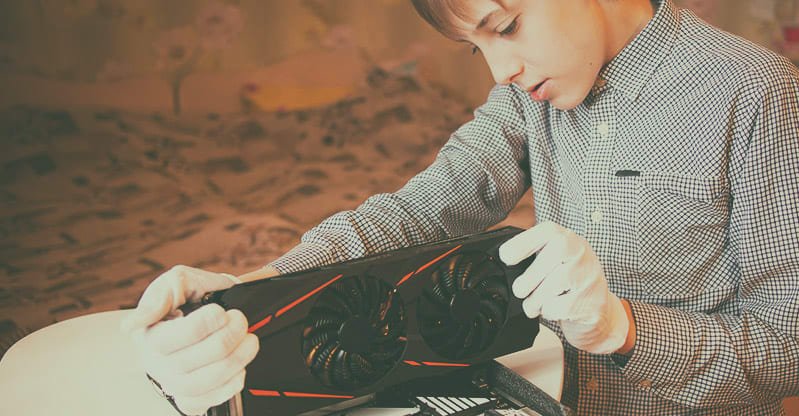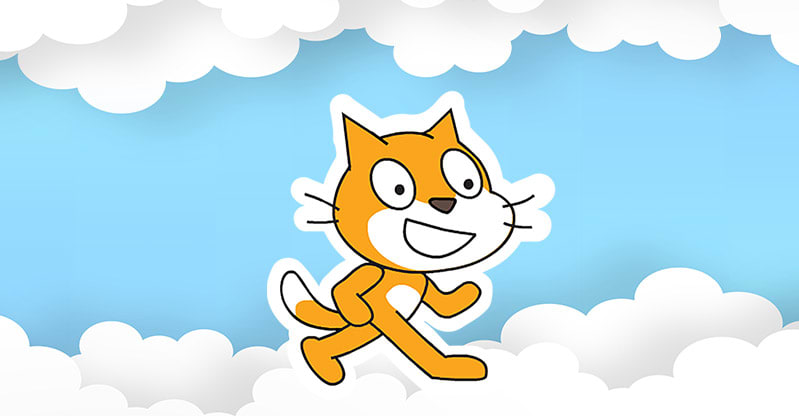Most likely, when we mention scientists, you start picturing a very serious person wearing a white apron in a neat, immaculate lab. Most likely, that same person you imagine is discovering something unique and useful for the future of the world, or maybe seeing a new planet for the first time. Perhaps, your imagination drives you to another place and when we say scientist, you imagine someone a bit dirtier than the image of the white apron, and you imagine someone working with animals and learning new facts about how they communicate.
Actually, you are not that wrong, but on this particular occasion we want to talk about another kind of science; a kind of science that is extremely relevant in the world of today, which will become even more relevant and necessary in tomorrow’s world. In this interesting article, we want to talk about computer science, an interdisciplinary field that is absolutely transcendental for our kids today.
But what is computer science? We know that teaching our children computer science is super important, but how do we make sure the introduction is engaging enough for our kids to truly understand the concepts of computer science, software development, and programming? You might be thinking about computer science classes for kids and that is one of the many solutions we can think of… But first of all, let us walk you through the computer science concept and then we will go over how to teach kids this concept.
Are you ready? You should be because in the paragraphs to come, you will start imagining a new kind of scientist, you’ll understand your children can be that scientist, and you will discover some very cool computer science facts for kids.

What field of study is computer science for kids?
You might be asking yourself what computer science is and we want to try and explain it in the simplest terms. Computer science is the study of the numerous processes that interact with different sources of data and information and that can be represented, as a result, in the form of apps, games, software or programs. Computer science and algorithms are closely related since it allows them to save, communicate and sometimes manipulate information in a digital format.
Among many other things that are not that exact, computer science (widely abbreviated to CS), studies a number of different fields including programming languages, problem-solving, robotics, mathematics, algorithms, and even statistics. It is exactly this computer science fact that makes this science an interdisciplinary one.
When asking ourselves what the best programming languages for kids are, or what are the best ways to teach our kids computer science a lot of ideas come to mind. In order for these ideas to be effective, we should first learn how to create an engaging introduction to the concept of computer science, and even some computer science activities for kids that can boost their skills and increase their interest in the field.
So, to actually define the field of study computer science, we will start by saying that it is a very relevant one. It is a field that will teach us a new way of thinking, which will strengthen our kids’ abilities of problem-solving, critical thinking, and even creativity, while they create something cool and technological from a simple idea they just had.
Computer science is the ultimate field for our children to comprehend that anything is possible. That is why almost all schools around the world are incorporating coding and computer science classes for children; because these fields will help those kids to think differently, so they can make this world a better place with the outstanding things they’ll create.

What are the basics of computer science?
Sometimes we think we know everything, and when we talk about computer science basics, we assume we know all of it. Let us tell you, with our deepest respect, that you are all wrong. Most of us use a computer on a daily basis, but how many of us really know what a computer is, or what is inside a computer, or what binary code is and how is it written. Some of the basics of computer science are the ones presented in the list below, and as soon as your children start understanding this in a computer science class for kids, the sooner they’ll start gaining those important skills we mentioned before.
So, what are some of the basic elements of computer science for kids (and adults)?
Some of the computer science concepts your kids will learn about in this field are:
- What is a computer and what’s inside a computer?
- What is a binary code and how is it applied? (No, we are not talking about The Matrix)
- What is software and what is hardware? What are the differences and how they are built?
- What is the internet and how does it work?
- The importance and concept of “data”.
- What is an algorithm?
Actually, this surprises you, when your children learn how to code and how to create their very own app in one of Tekkie Uni’s app development courses, they’ll naturally understand all the things mentioned above; they’ll comprehend these computer science concepts for kids in a dynamic, didactic environment where they’ll have lots of fun.
One amazing way to begin your children’s path in the world of computer science can indeed be coding. You could invite them to try out Scratch, learn how our world works and how to turn their dreams into amazing technological realities in a colorful and friendly platform where they’ll feel safe to make mistakes (and learn from them), in order to create extraordinary things.

Is coding considered to be computer science for kids?
We could give you a long, detailed, explanatory answer (and actually we will), but let us begin with the answer to this question and then we’ll swim deeper into the long explanation. Coding is, indeed, part of the computer sciences.
Many schools and homeschoolers are incorporating coding and programming into their STEM curricula, since most people consider coding the most interdisciplinary field of computer science, which is already interdisciplinary… Can you imagine how many skills could your kids strengthen if they only learn how to code? You might be surprised!
Teaching kids computer science to kids can be engaging, fun and boost their self-expression and self-esteem if we do it through coding. The feeling of creating their very own app, from scratch, with all the elements they dreamed of will show them that when applying hands-on learning and understanding the basics of computer science, anything is possible!
There is only one big thing you need to take into consideration; computer science is more of a theoretical field with practical applications, while coding and programming is entirely practical and even recommended to be learned in a hands-on learning space.
Your kids can be scientists, even while being artists so enroll them in computer science classes!
A number of parents might be asking themselves why do their kids need to learn the concepts of computer science if they want to become dancers, painters, journalists, or even the next president of their country. Well, the answer is very simple: Computer science classes for kids gives them a new way of thinking.
Kids who learn how to code and who understand the basics of computer science develop a higher level of integral thinking, algorithmic thinking, creativity, and even teamwork skills. This whole skill-set is valuable and helpful in any field, whether or not it is related to computers and technology. Don’t you think?

Let’s begin with Scratch and App Development for kids
The time is now. Start amazing them with the cool computer science facts and activities for kids today. Enable your children to learn what software is, to learn how to program with Scratch, and to create breathtaking solutions and applications.
In the online courses offered by Tekkie Uni, your children will learn in an open, safe, fun, and engaging environment where they’ll develop countless abilities that will accompany them for the long haul. Giving your kids the tools they need to succeed in the future is possible. Now, it is up to you when to do so.










